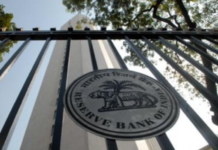New Delhi– The central government on Wednesday said it has received an ‘encouraging’ response to its regional connectivity scheme (RCS) with 45 initial proposals coming in from 11 bidders covering more than 200 regional routes.
According to the Ministry of Civil Aviation, the state-owned Airports Authority of India (AAI) — the implementing agency for the RCS — had received initial proposals which covered as many as 65 airports, of which 52 are unserved and 13 are underserved airports.
The last date for the submission of initial proposals was January 16, 2017.
Commenting on the industry’s response to the RCS, Civil Aviation Minister P. Ashok Gajapathi Raju said the proposals represent a significant step towards the vision of ‘connecting the un-connected and serving the un-served’.
“The scheme is likely to give a major boost to tourism activities and employment generation in hinterland and tier-II and tier-III cities,” the minister was quoted as saying in a statement.
The statement pointed out that the last date of counter-bids submission against these initial proposals is February 1.
“The routes or networks will be awarded to the bidders who quote the lowest requirement of viability gap funding (VGF) against such routes,” the statement elaborated.
“To ensure that operations on ground start with minimum time-gap after the bidding is completed, parallel action has also been initiated by the Ministry of Civil Aviation with AAI, state governments, DGCA (Directorate General of Civil Aviation) and the Bureau of Civil Aviation Security.”
Last year, the government had launched the RCS which is a key component of the National Civil Aviation Policy (NCAP), whose main objective is to “enhance regional connectivity through fiscal support and infrastructure development.”
The objective of RCS christened as UDAN (Ude Desh ka Aam Naagrik) is to enhance air passenger traffic in the country by stimulating demand on regional routes.
The UDAN scheme will be in operation for a period of 10 years.
The operations under the scheme are intended to provide air connectivity to un-served and remote routes with airfare being capped at Rs 2,500 for an hour’s journey of around 500 km.
The allocation of routes under the scheme will be based on a reverse bidding mechanism, with selected airlines getting a VGF, apart from various other financial concessions for a period of three years.
The central government is expected to provide concessions in the form of reduced excise duty and service tax, state governments will have to lower the VAT (value added tax) on ATF (air turbine fuel) to one per cent or less.
Besides, the state governments would not charge on security and fire services and electricity, water and other utilities would be provided at concessional rates.
On their part, airport operators shall not impose landing and parking charge and terminal navigation landing fees. They would also offer discounts on route navigation facility charges. (IANS)






